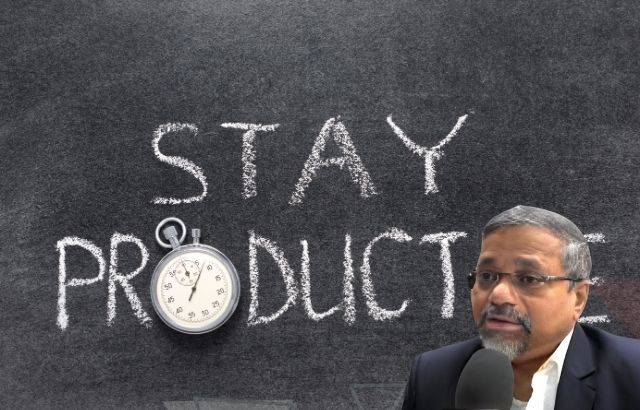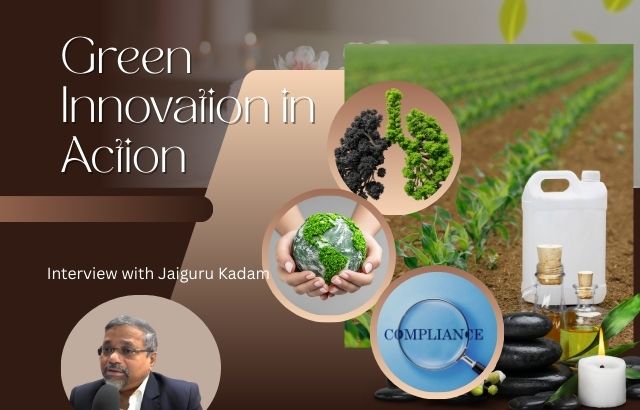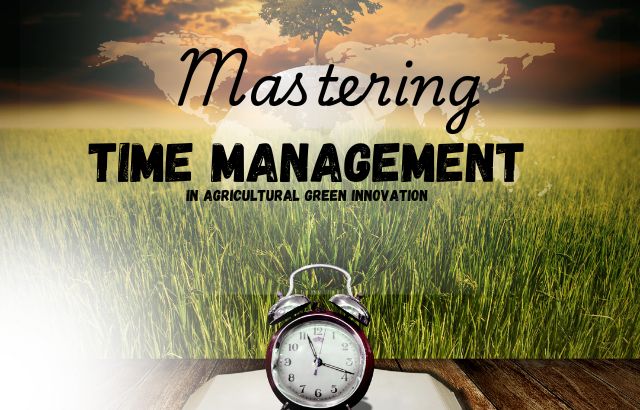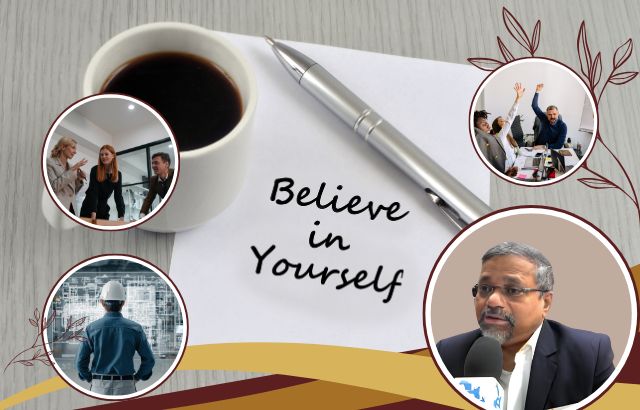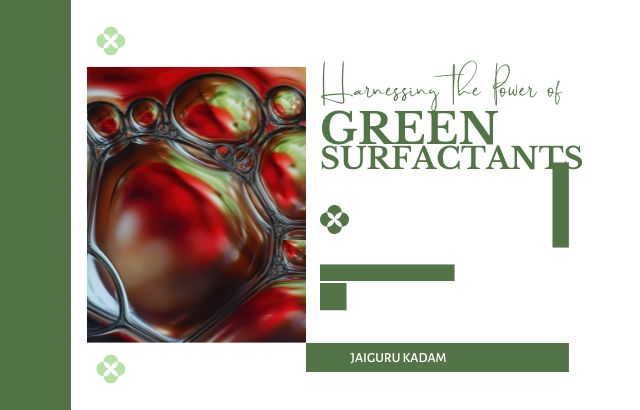Introduction: The Hidden Link Between Energy and Productivity
In our busy, hyper-connected world, we often associate productivity with how much we can accomplish within a given timeframe. But there’s a deeper, often overlooked factor at play: energy. If you’ve ever pushed yourself to the limit only to feel mentally and physically drained without seeing the desired results, you’re not alone. The truth is, our energy levels—both physical and mental—are the secret to sustained productivity.
As a Green Innovator, I’ve learned that our environment, habits, and even the technologies we use can either drain or replenish our energy. The key to staying productive isn’t just about working harder—it’s about identifying and managing the energy-drainers in our lives and integrating sustainable practices to help us thrive.
In this post, we’ll explore how to identify these energy-drainers, and I’ll share actionable strategies on how to combat them, drawing from both personal experiences and sustainable, green innovations. Together, let’s uncover how making eco-conscious choices can not only benefit the planet but also supercharge our productivity and well-being.
1. What are Energy-Drainers?
Energy-drainers are factors—whether external or internal—that siphon away your focus, enthusiasm, and mental strength. These can be physical, emotional, or psychological in nature, and they may stem from poor habits, negative thoughts, toxic relationships, or even a cluttered environment. When left unchecked, they can slowly erode your productivity, causing burnout and stress.
Common Types of Energy-Drainers:
- Mental Fatigue: Constant overthinking, excessive multitasking, and anxiety about upcoming tasks can lead to mental exhaustion, making it harder to stay focused.
- Emotional Drain: Toxic relationships, unresolved conflicts, or emotional burnout can significantly reduce your energy levels. These emotional wounds can lead to low motivation and decreased efficiency.
- Poor Physical Health: Lack of sleep, poor nutrition, and physical inactivity are often overlooked as contributors to low energy. When the body is out of balance, it’s harder to remain productive.
- Cluttered Environment: A disorganized workspace or home can make it difficult to focus and feel motivated. Clutter can have a subconscious draining effect on your mind and creativity.
- Social Media and Technology Overload: The constant bombardment of notifications and digital distractions can severely affect your concentration and energy. Studies show that too much screen time leads to mental exhaustion and a decrease in productivity.
2. The Role of a Green Innovator: How Sustainable Practices Combat Energy-Drainers

As a Green Innovator, I’ve discovered that eco-conscious choices—whether they are in your daily routine, workspace, or even your mindset—can play an integral role in combating energy-drainers and boosting productivity. By integrating green practices into our work and personal lives, we not only contribute to a healthier planet but also a healthier, more energized version of ourselves.
Here are ways in which sustainable living supports productivity:
A. Clean, Green Spaces Boost Mental Clarity
Research has shown that being in natural environments significantly reduces stress, improves mood, and enhances focus. Green spaces in your environment—whether it’s plants in your office or a walk in the park—allow your mind to reset, replenishing mental energy.
- Incorporate biophilic design: Bringing natural elements like plants, water features, and natural light into your workspace has been shown to increase focus and creativity. Studies have found that people who work in such environments report being 15% more productive.
- Work outdoors when possible: Taking advantage of eco-friendly outdoor spaces can be incredibly rejuvenating. Fresh air and sunlight not only replenish your body but also offer a natural energy boost, helping you stay focused throughout the day.
B. Sustainable Nutrition = Sustained Energy
One of the most fundamental ways to fuel your productivity is through healthy eating, which also has eco-friendly implications. Eating locally sourced, plant-based, and organic foods not only reduces your carbon footprint but also provides long-lasting energy.
- Eat sustainable, plant-based foods: A diet rich in whole grains, fruits, vegetables, and legumes supports both environmental health and your energy levels. Studies show that plant-based diets can lead to better energy levels, improved digestion, and mental clarity.
- Reduce food waste: By being mindful of food waste and composting leftovers, we not only reduce environmental harm but also foster a mindset of intentionality. This attitude often extends to other aspects of life, improving focus and efficiency.
C. Green Technology to Power Productivity
As a Green Innovator, I understand the importance of technology in driving productivity. However, being mindful of its ecological impact is just as crucial. Sustainable technology is a key enabler of energy conservation while boosting efficiency.
- Energy-efficient devices: Choosing energy-efficient devices—such as LED lights, solar-powered gadgets, or energy-saving computers—helps reduce your energy consumption and carbon footprint. These small, sustainable adjustments can contribute to a healthier work environment.
- Green apps for productivity: There are numerous eco-conscious apps that help you stay organized, track your sustainability goals, and even reduce your digital carbon footprint. Apps like Forest, which encourages you to focus while planting virtual trees, or Green Gas Saver, which tracks your vehicle’s carbon emissions, are great examples.
D. Nature-Inspired Mindfulness and Stress Management
Mindfulness and meditation rooted in nature can help you reconnect with yourself, manage stress, and improve mental clarity. By practicing techniques that focus on the environment, you can create a sense of calm that improves your productivity.
- Nature meditation: Spending time meditating in nature, or simply practicing mindfulness by observing natural elements, has been shown to improve emotional resilience, boost concentration, and reduce stress. As a Green Innovator, I encourage you to take moments throughout the day to step outside and simply be present with your surroundings.
3. How to Stay Productive: Tips to Counter Energy-Drainers
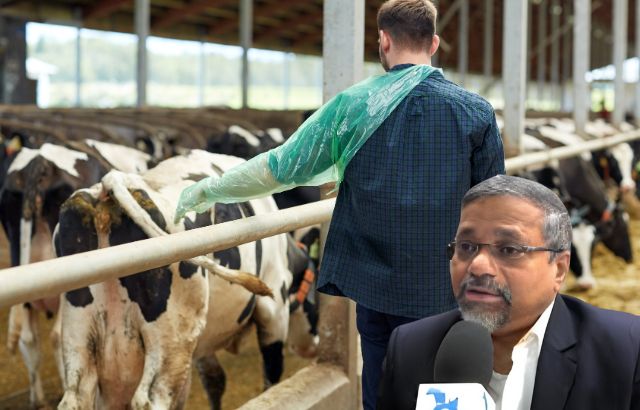
Now that we’ve identified the common culprits of energy drainage, let’s discuss strategies to keep your energy levels high while boosting productivity—and how green practices can enhance these strategies.
1. Practice Mindful Time Management
Set clear goals and break them into manageable tasks. Prioritize high-impact tasks that align with your core objectives. Use time-blocking techniques, where you allocate specific time slots for deep work, breaks, and reflection. A balanced schedule allows you to stay productive without draining your mental energy.
2. Build Healthy Daily Habits
Your physical energy is deeply tied to your habits. A healthy lifestyle is the foundation of long-term productivity.
- Get enough sleep: Sleep affects everything, from cognitive function to emotional regulation. Aim for 7-9 hours per night.
- Eat whole, nutritious foods: A balanced diet with plenty of vegetables, fruits, and protein helps maintain steady energy throughout the day.
- Exercise regularly: A quick walk or 15-minute stretch routine can refresh your mind and body, making you more focused.
- Adopt a green, sustainable diet: A plant-based, eco-friendly diet not only nourishes your body but supports environmental health, making it easier to stay energized and motivated.
3. Create a Clean and Energizing Environment
A clutter-free, well-organized workspace will not only boost your productivity but also give you a sense of mental clarity.
- Declutter regularly: Keep your desk or workspace free from unnecessary items. A minimalist environment helps focus the mind.
- Optimize lighting: Natural light or soft, warm lighting can increase concentration and reduce fatigue.
- Bring nature indoors: Plants or natural materials can uplift the atmosphere and provide fresh air, contributing to a more energizing space.
4. Take Strategic Breaks
Overworking is one of the easiest ways to become mentally exhausted. Schedule short breaks (5-10 minutes) throughout the day. During breaks, disconnect from work entirely. Go for a walk, meditate, or engage in something that helps you recharge.
5. Reduce Social Media and Tech Overload
Limit your screen time, especially on social media, which can cause mental fatigue and distract you from important tasks. Consider using apps or tools that block distractions, helping you stay focused.
6. Cultivate Emotional Resilience
Address emotional energy-drainers like toxic relationships, unresolved conflicts, or negative thoughts. Engaging in self-care practices such as meditation, journaling, and therapy can help you develop emotional resilience, reducing stress and boosting overall well-being.
7. Say “No” When Necessary
Learning to say no is a critical skill in maintaining your energy. Overcommitting yourself to too many projects or obligations can quickly lead to burnout. Prioritize what matters most and politely decline tasks or engagements that don’t align with your goals.
4. FAQs

Q1: How do I know if I’m suffering from emotional energy-drainers?
Emotional energy-drainers can show up as feelings of constant stress, overwhelm, irritability, or lack of motivation. If you find yourself becoming easily frustrated or unable to focus, it may indicate that emotional energy is being drained.
Q2: How can I improve my environment to boost productivity?
Start by decluttering your space. A clean and organized environment allows for mental clarity. Additionally, bringing in natural elements like plants or using calming colors can reduce stress and help with focus. Adjust the lighting to be softer or more natural to prevent eye strain.
Q3: What role does sleep play in productivity?
Sleep is crucial for cognitive function, memory retention, and emotional regulation. Lack of sleep can lead to impaired judgment, reduced focus, and slower reaction times, all of which negatively impact productivity.
Aim for 7-9 hours per night.
Q4: How can I maintain my energy when working long hours?
To stay energized during long working hours, take regular breaks, hydrate frequently, eat healthy snacks, and incorporate short exercise sessions. It’s also important to stay mentally engaged by varying your tasks and goals throughout the day.
Q5: Can technology ever be an energy-booster for productivity?
Yes! Technology, when used wisely, can help boost productivity. Apps for time management, focus timers (like the Pomodoro Technique), and habit trackers can help streamline your work process. However, it’s crucial to avoid overuse and stay mindful of digital distractions.
5. Conclusion: Energy and Productivity Go Hand-in-Hand

To stay productive, it’s crucial to not just focus on the tasks at hand but also on the energy you bring to those tasks. Identifying your energy-drainers and taking active steps to counteract them will help you not only improve your focus but also enhance your overall well-being. Whether it’s by managing your time better, improving your physical health, or creating a positive environment, there are plenty of ways to keep your energy levels high and stay productive.
As a Green Innovator, I encourage you to integrate sustainable practices into your routine to not only enhance your personal productivity but also contribute to the health of the planet. After all, when we nurture the Earth, we nurture ourselves.
Remember, it’s not about working harder; it’s about working smarter—with the energy we have.
Statistics to Note:
- 64% of people report feeling mentally exhausted due to overuse of digital devices (American Psychological Association, 2022).
- 75% of individuals who regularly take breaks report higher productivity and lower stress levels (Harvard Business Review, 2021).
- People who sleep 7-9 hours a night are 20% more productive than those who sleep less than 6 hours (Sleep Foundation, 2020).
- 30% of people report feeling more energized and productive after adopting sustainable habits like eating plant-based diets and reducing waste (Sustainability Report, 2022).
How do you integrate sustainability into your work routine? Let’s discuss some green initiatives that have worked for you!

